#joseph bologna
Text
#comedia#lio en rio#michael caine#rio de janeiro#brazil#demi moore#joseph bologna#michelle johnson#1984#summer people
114 notes
·
View notes
Photo
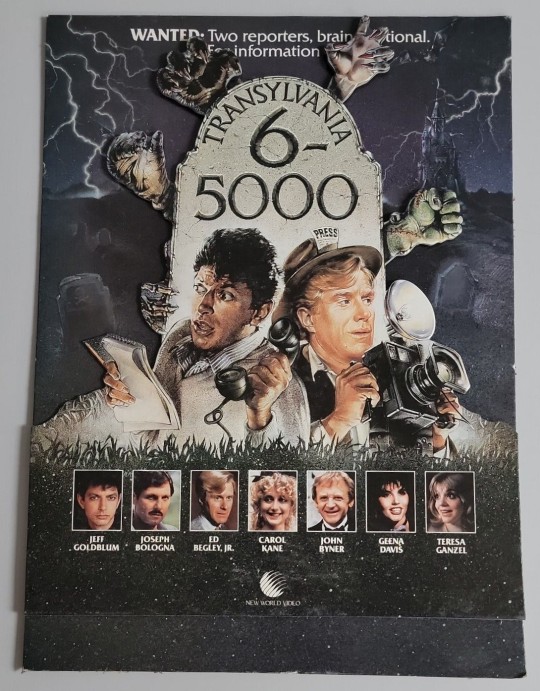
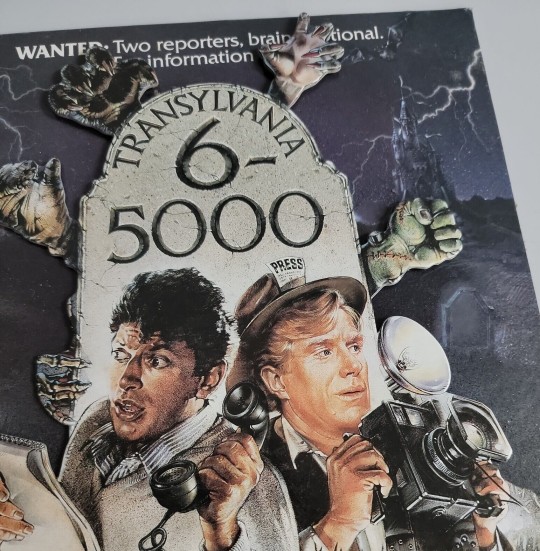
#Transylvania 6 5000#Rudy De Luca#Jeff Goldblum#Ed Begley Jr.#Geena Davis#Joseph Bologna#Carol Kane#John Byner#Teresa Ganzel#80s
30 notes
·
View notes
Text
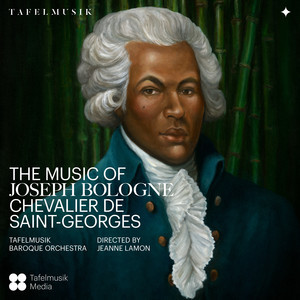


Chevalier de Saint-Georges
Joseph Bologne, Chevalier de Saint-Georges(December 25, 1745 – June 10, 1799), was a FrenchCreolevirtuoso violinist and composer, who was conductor of the leading symphony orchestra in Paris.
Saint-Georges was born in the then French colony ofGuadeloupe, the son of Georges de Bologne Saint-Georges, a wealthy married planter, and an enslaved African woman named Nanon. At the age of seven he was taken to France, and at the age of thirteen educated asgendarmeto the King. He received music lessons from François-Joseph Gossec and likely violin lessons from Jean-Marie Leclair, while continuing to study fencing.
In 1764 Antonio Lolli dedicated two concertos to Saint-Georges. In 1769 he joined a new symphony orchestra; two years later he was appointed concert master and soon started composing. In 1773 he was appointed conductor of "Le Concert des Amateurs". In 1775 he introduced the symphonie concertante, using the possibilities offered by a newbow. In 1776 he was proposed as the next conductor of the Paris Opera, but was subsequently denied this role by a petition by the divas of the time to the Queen. This then put an end to any aspirations that Saint-Georges had to becoming the music director of the institution. In 1778 he lived for 2.5 months next to Mozart in the Chaussee d'Antinand stopped composing instrumental works in 1785. He knew many composers, including Salieri,Gossec,Gretry,Mozart and Gluck. He commissioned and performed the Paris Symphonies by Haydn and travelled to London where he met with the Prince of Wales and George IIIin 1787.
Following the 1789 outbreak of the French Revolution, the younger Saint-Georges served as a colonel of the Légion St.-Georges(established in 1792), the first all-African regiment in Europe, fighting on the side of the French First Republic. Today the Chevalier de Saint-Georges is best remembered as the first well-known classical composer of African ancestry. He composed numerous string quartets and other instrumental pieces, violin concertos as well as operas. Ludwig van Beethoven held his music and his views very highly.

Joseph Bologne was born in Baillif, Basse-Terre as the son of a planter and former councilor at the parliament of Metz, Georges de Bologne Saint-Georges (1711–1774) and Nanon, his wife's 16-year-old enslaved African servant of Senegalese origin, who served as her personal maid. Bologne was legally married to Elisabeth Mérican (1722–1801) but acknowledged his son by Nanon and gave him his surname
Starting in the 17th century, a Code Noir had been law in France and its colonial possessions. On April 5, 1762, King Louis XV decreed that "Nègres et gens de couleur" (Africans and people of color) must register with the clerk of the Admiralty within two months. Many leading Enlightenment thinkers like Voltaire argued that Africans and their descendants were inferior to White Europeans. These laws and racist attitudes towards mixed-race people made it impossible for Joseph Bologne to marry anybody at his level of society, though he did have at least one serious romantic relationship.

Musical life and career
François-Joseph Gossec
Nothing is known about Saint-Georges' early musical training. Given his prodigious technique as an adult, Saint-Georges must have practiced the violin seriously as a child. There has been no documentation found of him as a musician before 1764, when violinistAntonio Lollicomposed two concertos, Op. 2, for him,[note 1]and 1766, when composerFrançois-Joseph Gossecdedicated a set of six string trios, Op. 9,to Saint Georges. Lolli may have worked with Bologne on his violin technique and Gossec on compositions.
(Beauvoir's novel says that "Platon", a fictional whip-toting slave commander onSaint-Domingue, "taught little Saint-Georges" the violin.[note 2])
Historians have discountedFrançois-Joseph Fétis' claim that Saint-Georges studied violin withJean-Marie Leclair. Some of his technique was said to reveal influence byPierre Gaviniès. Other composers who later dedicated works to Saint-Georges wereCarl Stamitzin 1770, and Avolio in 1778.
In 1769, the Parisian public was amazed to see Saint-Georges, the great fencer, playing as a violinist in Gossec's new orchestra,Le Concert des Amateurs. Four years later he became its concertmaster/conductor. In 1772 Saint-Georges created a sensation with his debut as a soloist, playing his first two violin concertos, Op. II, with Gossec conducting the orchestra. "These concertos were performed last winter at a concert of theAmateursby the author himself, who received great applause as much for their performance as for their composition." According to another source, "The celebrated Saint-Georges,mulatto fencer [and] violinist, created a sensation in Paris ... [when] two years later ... at theConcert Spirituel, he was appreciated not as much for his compositions as for his performances, enrapturing especially the feminine members of his audience."
Young Saint-Georges in 1768, aged 22. The three roses on his lapel were a Masonic symbol.
Saint-Georges's first compositions, Op. I, were a set of six string quartets, among the first in France, published by famed French publisher, composer, and teacherAntoine Bailleux. They were inspired byHaydn's earliest quartets, brought from Vienna by Baron Bagge. Saint-Georges wrote two more sets of six string quartets, threeforte-pianoand violin sonatas, a sonata for harp and flute, and six violin duets. The music for three other known compositions was lost: a cello sonata, performed in Lille in 1792, a concerto for clarinet, and one for bassoon.
Saint-Georges wrote twelve additional violin concertos, two symphonies, and eightsymphonie-concertantes, a new, intrinsically Parisian genre of which he was one of the chief exponents. He wrote his instrumental works over a short span of time, and they were published between 1771 and 1779. He also wrote sixopéras comiquesand a number of songs in manuscript.
In 1773, when Gossec took over the direction of the prestigiousConcert Spirituel, he designated Saint-Georges as his successor as director of theConcert des Amateurs. After fewer than two years under the younger man's direction, the group was described[by whom?]as "Performing with great precision and delicate nuances [and] became the best orchestra for symphonies in Paris, and perhaps in all of Europe."
Palais de Soubise, venue of Saint-Georges' orchestra
In 1781, Saint Georges'sConcert des Amateurshad to be disbanded due to a lack of funding. Playwright andSecret du RoispyPierre Caron de Beaumarchaisbegan to collect funds from private contributors, including many of theConcert'spatrons, to sendmaterielaid for the American cause. The plan to send military aid via a fleet of fifty vessels and have those vessels return withAmerican rice, cotton, or tobacco ended up bankrupting the French contributors as theAmerican congressfailed to acknowledge its debt and the ships were sent back empty. Saint-Georges turned to his friend and admirer,Philippe D'Orléans, duc de Chartres, for help. In 1773 at the age of 26, Philippe had been elected Grand Master of the 'Grand Orient de France' after uniting all the Masonic organizations in France. Responding to Saint-Georges's plea, Philippe revived the orchestra as part of theLoge Olympique, an exclusive Freemason Lodge.
RenamedLe Concert Olympique, with practically the same personnel, it performed in the grand salon of thePalais Royal. In 1785, Count D'Ogny, grand master of the Lodge and a member of its cello section, authorized Saint-Georges to commissionHaydnto composesix new symphoniesfor the Concert Olympique. Conducted by Saint-Georges, Haydn's "Paris" symphonies were first performed at the Salle desGardes-Suissesof theTuileries, a much larger hall, in order to accommodate the huge public demand to hear Haydn's new works. QueenMarie Antoinetteattended some of Saint-Georges's concerts at the Palais de Soubise, arriving sometimes without notice, so the orchestra wore court attire for all its performances. "Dressed in rich velvet or damask with gold or silver braid and fine lace on their cuffs and collars and with their parade swords and plumed hats placed next to them on their benches, the combined effect was as pleasing to the eye as it was flattering to the ear." Saint-Georges played all his violin concertos as soloist with his orchestra.
#saint george#joseph bologna#paino#african#kemetic dreams#black mozart#afrakan#brownskin#afrakans#brown skin#african culture
41 notes
·
View notes
Photo
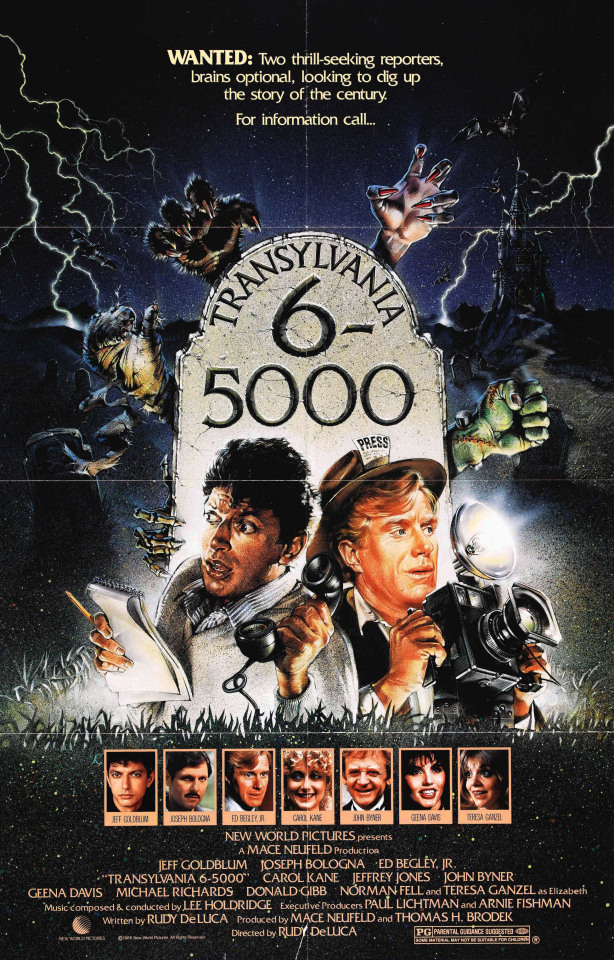
#transylvania 6-5000#jeff goldblum#ed begley jr.#joseph bologna#carol kane#jeffrey jones#john byner#geena davis#michael richards#donald gibb#norman fell#teresa ganzel#rudy de luca#1985
9 notes
·
View notes
Text
"My Favorite Year" (1982) - Richard Benjamin

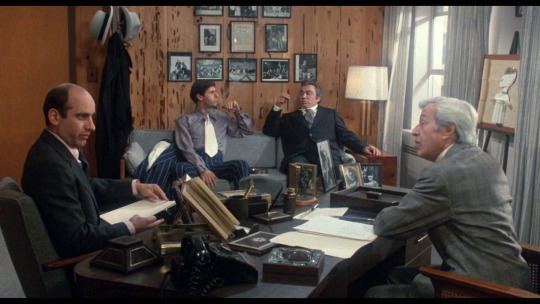




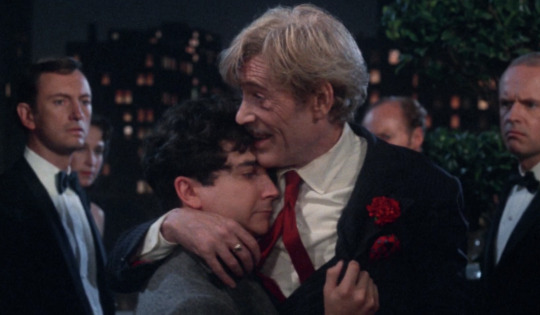
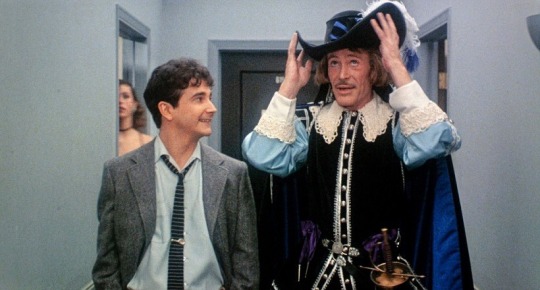

Films I've watched in 2022 (197/210)
Full film on Archive.org
#films watched in 2022#My Favorite Year#Bill Macy#Mark Linn-Baker#George Wyner#Joseph Bologna#Cameron Mitchell#Adolph Green#Peter O'Toole#Gloria Stuart#Lainie Kazan#Lou Jacobi#Ramon Sison#Norman Steinberg#Dennis Palumbo#Richard Benjamin#Mel Brooks#comedy
1 note
·
View note
Text
Preview- Alligator & Alligator II: The Mutation (Limited Edition 4K UHD & Bluray)
101 Films presents cult classic creature feature Alligator (1980) on 4K UHD, along with the TV cut and 1991 sequel Alligator II: The Mutation (1991) on Blu-ray, title 033 on the 101 Films Black Label. Packed with interviews with cast and crew, this limited-edition release is packaged in a rigid box with brand new artwork and includes a limited-edition booklet with new writing on the films.
A…

View On WordPress
#Alligator#Alligator II: The Mutation#Dee Wallace#Joseph Bologna#Kane Hodder#Lifeforce#Richard Lynch
0 notes
Text
13 agosto … ricordiamo …
13 agosto … ricordiamo …
#semprevivineiricordi #nomidaricordare #personaggiimportanti #perfettamentechic
2022: Denise Dowse, Denise Yvonne Dowse, attrice e regista statunitense. Era meglio conosciuta per i suoi ruoli come la signora Yvonne Teasley nella serie televisiva Beverly Hills, 90210 (1991-2000), il giudice Rebecca Damsen in The Guardian (2001-2004) e la dottoressa Rhonda Pine in Insecure. Dowse ha iniziato a recitare nel 1989 apparendo in numerose serie TV. Denise ha diretto il film…
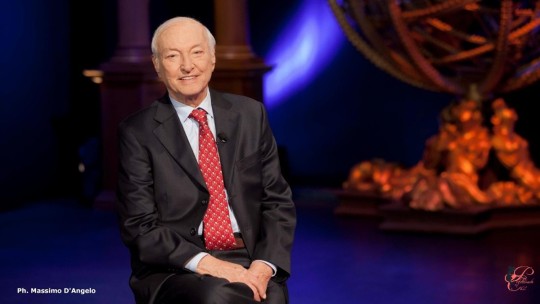
View On WordPress
#13 agosto#13 agosto morti#Alberto Lupo#Alberto Zoboli#Alessandra Winkelhauser Ratti#Brooke Astor#Denise Dowse#Denise Yvonne Dowse#Elaine Hammerstein#George Fisher#Helen Mack#Helen McDougall#Joseph "Joe" Bologna#Joseph Bologna#Nadia Toffa#Nico Pepe#Piero Angela#Ricordiamo#Roberta Brooke Astor#Rossana Di Lorenzo#Salvatore Cantalupo#Sandra Ravel
0 notes
Text
youtube
#codice ratzinger#deboramenozzi#bologna#religione#cristianesimo#cattolicesimo#joseph ratzinger#benedetto xvi#francesco I#andrea cionci#ultime conversazioni#recensione libri#byoblu edizioni#antipapa#stato del vaticano#youtubeitalia#Youtube
0 notes
Text
CRIME FICTION TRANSLATOR INTERVIEW: JOSEPH FARRELL
Joseph Farrell is Professor Emeritus in Italian at the University of Strathclyde, Glasgow. He has translated several Italian novels by the likes of Valerio Varesi and Leonardo Sciascia. His theatre works include English editions of plays by Dario Fo, Eduardo De Filippo, Carlo Goldoni and Luigi Pirandello plus three film scripts by Giuseppe Tornatore. He is co-author with Franca Rame of Non è tempo di nostalgia and La mia vita, le mie battaglie with the novelist Dacia Maraini. His latest Varesi translation is The Unseen, which has been published in the UK through Patrician Press.
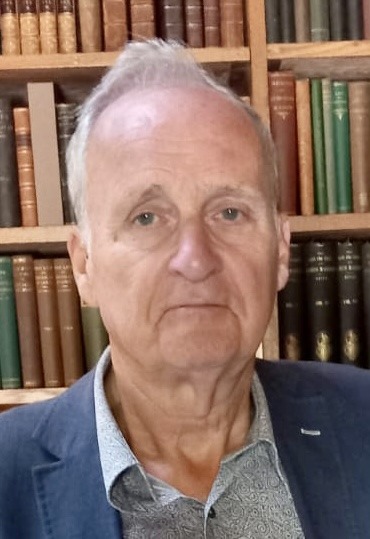
Matthew Ogborn: How much fun is it to translate Valerio's novels, which are packed with so much atmosphere unique to a particular region and so many characters that sing on the page in manifold ways?
Joseph Farrell: "Every exercise of translation is a mixture of enjoyment and frustration, a combination of challenges which can lead to a pleasurable sense of achievement or to downright despair. The reference to the 'atmosphere' which is 'unique to a particular region' goes to the heart of the matter. Atmosphere is intangible but vital, and recognising it as central to translation work is the key to the success of any translation. Not all linguistic dilemmas can be wholly resolved, although most can with care and imagination, but there are elements which are specific to the individual writer, some of which escape their notice and as such defy the translator's efforts.
"George Steiner identifies four moments in the process of translation: trust, aggression, incorporation, and retribution. 'Trust' and 'retribution', he writes, honour the source text and the author's intentions, while 'aggression' and 'incorporation' are associated with the efforts of the translator. I like that distribution of responsibility between writer and translator.
"Translation is thus a co-operative work, even if the original writer is dead or unco-operative. Valerio Varesi was highly co-operative, always prepared to answer queries and enter into discussion. A watershed book on translation was Lawrence Venuti's The Invisible Translator (1995) but never before has the translator been so visible and translation so much discussed, rarely by practitioners. Tim Parks is an exception, and unsurprisingly his essays are the ones I find most helpful and acute. Venuti made a much discussed distinction between two tendencies in translation, the tendency to 'foreignise' and the competing wish to 'domesticate'. Parks said that he mistrusts any translator who does not feel both of these urges.
"I agree, but the tension between two remains. Translation is a process of remaking, but what is the writer's role and what is the translator's? This is not to lend any credence to unjustifiable notions of the translator as 'second author', since the author's part is to develop plot, character, individual scenes and encounters, debate questions of values, advance certain views and reject others, and together these elements constitute the author's vision and dictate his style.
"The translator's task is to convey this creation in another language to readers of another culture. The translator has to devise voice and context, to collaborate with, and never contest, a recasting of the original. Transposing the vision is feasible, if challenging, but re-creating the style is the equivalent of the labours of Hercules. D. H. Lawrence, the greatest of the writer-translators – whatever the deficiencies of his knowledge of Italian – insisted on respecting the specificity of Verga's Sicilian work, and particularly of his dialect.
"One of Valerio Varesi' remarkable talents as a writer is his ability to create lively, engaging dialogue, notable especially in the interrogation scenes where his detective is intent on drawing out information, often without alerting the other person he is under suspicion. Equally, the more personal conversations between Commissario Soneri and Angela are reported with skill and sensitivity.
"His works are set in very particular geographical area, the city of Parma and the banks of the Po. He creates the terrain for his fiction, and his readers return to it with the joy of recognition of characters and landscapes. This carefully defined landscape presents no greater barrier to the task of the translator or the enjoyment of the reader than does a novel set in Dostoyevsky's Saint Petersburg or Balzac's Paris. As I noticed while translating successive novels by Varesi, the passages of descriptive prose, particularly of the scenery along the Po or in the countryside outside Parma, were reduced in number in successive books. Perhaps he was unaware of this shift, or felt that he had made his scene sufficiently concrete in the early novels, for there is a sense that all his crime fiction constitute one ongoing, developing novel.
"However, they are also set in an equally definable social, moral or even spiritual zone. The classical detective story, Anglo-American in origin, was essentially a moral tale, and so too are Varesi's. Further, his characters are vividly drawn, bursting with life, with a richness of experience which expressed not just lived experience but elements of local and national history. That added to the delight, and difficulty, of rendering his work in English."
How does Valerio differ from the other Italian authors that you translate from the native language?
"It is the merest cliché to say that every writer worthy of the name expresses his own world and his fiction expresses his reaction to it. Varesi is interesting for, among other things, being author of two genres of fiction normally held to be quite distinct – the crime story and the political novel. On the one hand, he has written a trilogy of novels on post-war Italy, while on the other he has written a series of detective stories featuring Commissario Soneri, but in important aspects the two series merge. His gialli are not merely works written as pastimes or vacuous entertainment to while away empty hours, perhaps while travelling by train; they constitute examinations of Italian society.
"Soneri and Angela recall their own youth in the years of the contestazione, evoking not just the passion of those years but the belief, commitment and hope of that time, and contrast them with the cynicism and shallowness of the power-worship of political practice now. He surveys aspects of Italian society by means of the detective novel. For instance, in River of Shadows, he examines the complex legacy of the Resistance, in Gold, Frankincense and Dust the ecclesiastical influence and in The Lizard Strategy he probes political corruption.
"In some novels, he introduces an oracular figure, an outsider, perhaps a displaced tramp or a priest, whom Soneri meets to converse on matters which transcend the crime investigation and which probe the values, or lack of values of society. This ability to pose awkward political and social questions differentiates his work from that of his contemporary crime writers in Italy or abroad."
Both as a translator and writer yourself, what is it that makes Italy so fascinating to you and how important is crime fiction in commenting on society particularly with the current political landscape shifting towards the right again?
"There are two very different questions here: a) I have written extensively for newspapers and journals on Italian politics, and the main point I want to make is that the love I feel for Italy, its culture and society – and for Sicily in particular – is of a quite different order from the political dimension of Italian life. My affinity with things Italian is entirely impervious to any distaste for the conduct of politicians. I should add that I also detest the condescending way in which British commentators tend to observe political behaviour in Rome, or Palermo, as though the conduct of politics in Westminster were of an intrinsically superior level. This judgment has suffered a jolt with events at British Cabinet level in the 21st century.
"I went to Rome in the 1960s and attended university for three years. I was studying philosophy so a knowledge of the literature came later, but I was immediately fascinated by the city, the exuberance of life lived at a different tempo from any I was accustomed to, even by the climate which made possible the banal fact of living outdoors. I was also drawn by Rome's overlapping historical periods as visible in stone, and particularly by its architecture. Nothing made as strong and impact as the diverging styles, and rivalry, of the 18th century contemporaries, Bernini and Borromini. I had no interest then in Italian politics. This multi-dimensional fascination with Italy cannot be shaken.
"b) In crime fiction, there is no Italian equivalent of the village or drawing murder story of the Agatha Christie type, even if Christie herself is translated and widely read. There is a map of Italian crime writers which covers all Italy, Varesi in Parma, Sciascia and Camilleri in Sicily, Lucarelli in Bologna, and Machiavelli in Turin. They are all linked to their own native places, but the probes in their crime fiction reveal the deep ambiguity of their relationship to these places. They are not afraid to expose beneath the surface decencies a hidden, concealed foundations. This probing has become more relentless since the emergence of Berlusconi as a political force, and the emergence of the League as a national, not regional power. It is reasonable to assume that this wish to view crime not as the act of a deviant individual but as a symptom of a social ill will continue under the government of the extreme right coalition led by Giorgia Meloni."
Read the English version of my Valerio Varesi interview HERE.
Leggi la versione italiana della mia intervista a Valerio Varesi QUI.
#joseph farrell#crime fiction#valerio varesi#agatha christie#sciascia#camilleri#lucarelli#machiavelli#parma#sicily#bologna#turin#bernini#borromini#commissario soneri#the unseen#river of shadows#the lizard strategy#University of Strathclyde#Dario Fo#Eduardo De Filippo#Carlo Goldoni#Luigi Pirandello#Giuseppe Tornatore#Franca Rame#Non è tempo di nostalgia#La mia vita le mie battaglie#Dacia Maraini#Patrician Press#George Steiner
1 note
·
View note
Text

tagged by @kyber-infinitygems
tagging: @direwombat @adelaidedrubman @poetikat @derelictheretic @roofgeese @confidentandgood @marivenah @detectivelokis @strangefable @passinoutpieces @inafieldofdaisies @locustandwildhoney @voidika @purplehairsecretlair @shallow-gravy @kittiofdoom @clicheantagonist @josephslittledeputy @baldurrs (no pressure of course) and anyone else with anything to share consider this me tagging you :)
So now that I’ve finally reached the point where Kit’s in the Whitetails, expect a lot more Kit and Jacob stuff for these WIP Wednesdays. Here’s a bit from chapter 19 of American Beasts, set around the time of her 2nd trial shortly after the fun visit from Joseph:
“Kitten?” Her eyes flashed with anger, unimpressed by her own nickname. “That’s the second time you’ve called me that now.”
“Got a problem with that, Deputy?” He dragged his chair over, metal scraping against the floor. He swung his leg over the seat and sat down in front of her, leaning back and taking her in. His crossed arms drew attention to his broad shoulders, pulling at the worn canvas of his army jacket. “Look at ya. I’ve seen what you’re capable of. You’re methodical, precise. You strike hard and fast, you’re not some blunt object that beats until the job finally gets done. You’re sharp, like a knife, every cut you make is damn near surgical. Frankly, I'm impressed. You’re on the path of the Chosen now.”
Her eyebrows flicked up gently, surprised considering everything he’d said about her previously. “So you don’t want to kill me?”
“No, that would be a waste.” With a quick shake of his head, he unfolded his arms and pressed his hands to his thighs.
She couldn’t help but have her eyes follow, dragging over the denim material and noticing how it bunched up around the holster on his thigh. Noticing the very large blade he wore there, along with his handgun. She’d be a liar if she didn’t admit she was growing fond of his legs.
“I can help you, Kit, I can help make you strong.” He tilted his head with a smug grin.
“I am strong.”
“Oh, I am well aware of that.” He grabbed at the cougar pin on her jacket, his thumb brushing off a drop of blood that had dried on it. “The brutality inside you, just clawing at the surface, I can use that.”
She scoffed at his insinuation, “I’m not some fucking tool for you to use. Why don’t you get your own hands dirty?”
He sneered and then reached over towards the table beside her, in amongst his files and maps was a tarnished metal plate with a sandwich. White bread, crusts still intact, mustard dripping over the edge and clinging to what looked like bologna. He pulled the plate towards himself and placed it in his lap.
She hadn’t eaten in some time and she could feel her stomach growl. It was hardly the most appetizing thing she’d ever seen but beggars can’t be choosers and right now she didn’t have many options.
His eyes flicked up to notice where she was staring, a cruel grin spreading across his lips. “You came here because of Peaches, right?”
She was hardly going to refer to Staci using that stupid nickname. She rolled her eyes and brought her eyes back up to look Jacob in the face. “You mean, Pratt?”
“Potato, potahto.” He said with the shrug of his shoulder.
Picking up one of the sandwich halves from the plate, he held it in front of her face just out of reach of her mouth. Another form of torture.
“I’ll fucking bite you if you try and feed me.”
He pulled the sandwich back and grinned. “Then I'll have to grab ya by the scruff of the neck and toss ya back in your cage like the feral little kitten you are. Won’t I?” His pale eyes stared into hers. “Open up.”
His voice seemed to have a power over her now, she was tuned into the tone so when he gave an order she felt forced to obey, whether she liked it or not. She licked her chapped, wind-bitten lips and then opened her mouth. His hand shot to her jaw, fingertips stained with nicotine, gun oil and dirt pressed into the meat of her cheeks as he placed the corner of the sandwich into her mouth. She tore into it and began to chew all with a scowl on her face.
“Why are you doing this?” She asked, her mouth full of bread.
“In the general sense or do you mean me feeding you?” She gave no answer to his question. He knew damn well what she meant. “I know how to treat my weapons, how to look after them, and how to care for them. And you, Kit, you are my weapon now. I intend to keep ya in fighting shape.” He answered with a wink.
“Tell your people to stop fucking shooting at me then,” she swallowed.
He chuckled, “Maybe you should stop your war against us.”
“I’m just supposed to let you win?” Her brow furrowed, one thing she was not was a quitter, she was sure he already knew that too.
“Or you could join?”
“You’re fucking crazy if you ever think that’s going to happen.”
His hand slipped from her face as leaned back in his seat, enjoying the little game they were in the middle of, the back and forth. “Oh, I don’t know about that. You let John live after all. Maybe you have a bit more sympathy for the devil than you think?”
“Or maybe you should put a bullet in my head for having a moment of weakness.”
“I was meaning to ask ya why you left him alive. After what he did, to you, to your friends. You could just have easily killed him. So why didn’t you?”
She couldn’t help but laugh, she could tell he was taunting her. Goading her into giving him further invitation into her thoughts than he had already stolen from her. “You think I'd ever tell you something like that, give you more access to the inside of my head? I don't fucking think so.”
His eyes narrowed, but the smirk remained. “Smart girl.” He brought the sandwich up to her mouth once more.
“I don't need to explain myself.”
“You don’t. Not to me.”
She bit into the sandwich, tearing another chunk off like she was ripping into his jugular with her teeth. “You think you know me, Seed?”
“I know you better than you know yourself. You follow the rules that society has deemed essential, you hide what you really are because it makes it easier on everyone else. You’d rather be alone somewhere far away where you could do as you please, where your instincts are all that matter. When you’re out there fighting you feel a rush, don’t you? You like the blood and the violence. It makes you feel strong, powerful, in a way nothing else seems to match. When the world comes to an end, you’re one of the few who could survive it.”
She sat there chewing with a cocked eyebrow as she forced the food down her throat with a heavy swallow. “Just me and the cockroaches, huh?”
“You already spend all your time with insects, would things really be so different?”
She shook her head, “There is nothing you will ever be able to say to me to get me on your side.”
He placed the plate back on his table and stood up, pacing around her seat. “You know I'm right, Kit. Ignoring the religious side of things, you can see the empire is about to crumble and fall. It’s a matter of when, not if.” He sat back on the tabletop, leaning his weight against it, watching her as her eyes cut their way up his middle, traveling over him.
“Then let it end. If the resistance is so weak, let them fall. Stop attacking them, just let them live and when the end comes they’ll go down with the rest. I didn't ask to get dragged into this.”
“No. But it makes you feel alive for the first time in a long time, doesn’t it?” He waggled his finger, pointing at her. “Joseph thinks this is meant to be, he believes you can see sense.”
“And what do you believe?”
“I believe you deserve to be saved.”
She looked down at her lap and snorted, glancing back at him from her periphery. “Big leap from wanting me dead.”
“It all comes from the same place. You’re a thorn in the side of the enemy, I’d just prefer you were a thorn for the other side.”
A smile crept across her mouth, looking up at him through her brow with her cat-like eyes. “You trying to call me a rose, Jacob?”
“No one’s ever going to confuse you for some delicate flower, honey. The best you’ll get from me is kitten.” He leaned over her and stroked the corner of her mouth with his thumb, dusting away the bread crumbs that had accumulated. “I want us to be friends, a mutually beneficial relationship. I give you what you want, you give me what I want.”
Looking up at him, her icy eyes seemed to sparkle, growing large as she pretended not to know. “And what is that?”
“The Whitetail Militia gone,” he rasped.
The way he said it made her shudder, a vibration traveling down her spine and into that dark pit inside her. She bit back on her molars and tried to steady herself once more.
“That would certainly make your life easier, wouldn't it?”
“You have no reason to show any loyalty to Eli. What has he done for you?”
“Freed me from the room you left me to rot in.”
“That’s all he’s done, otherwise he will take and take and take like the parasite he is. Expecting you to do his dirty work while he hides and plays general from the safety of his ivory tower. You deserve better, your efforts should be appreciated. You deserve to be rewarded.”
“Is that what these dry ass sandwiches are supposed to be? My reward?”
He walked back to his seat, easing himself back down into it, making himself eye level with her once more. Equals.
“They’re a peace offering. No more cages, no more torture. All you have to do is agree to not get in my way. To pick the right side when the time comes.”
“Become a Peggie?”
“In time. Once you prove yourself. Maybe.”
“I thought Joseph said it was a sure thing? You suddenly don’t trust him and his word?”
“I trust Joseph with my life. Who do you have on your side like that, Kit? Who can you say you feel that way towards?”
Kit rolled her eyes away from him. Unimpressed by his efforts to get inside her head.
“It’s all well and good to play at being the hero, the warrior. But at the end of the day what does it matter when you could fall and the resistance will pick someone else out of the crowd to lift them up. You’re not their savior, or their messiah, you’re another piece of meat they’re ready to toss into the flames at a moment’s notice.”
Her eyes landed on his chest, focused squarely on the dog tags that hung around his neck. “Why do you still wear those?”
He looked down at his chest. “Why wouldn't I?”
“Just what are you trying to prove and who are you trying to prove it to? Do you think your army only listens to you because you wear the trappings of a soldier?”
He fell silent. Taking a deep breath, he leaned in towards her, his eyes narrowed, his voice so low it was barely audible. “Don’t try and play mind games with me, angel. I’ve been around the block more times than you have.”
Kit’s eyes narrowed, her jaw tightening, she tilted her head and sat forward in her seat as best she could. “Do you think I’m scared of you?”
He cut the distance between them, his voice a deep rasp, “You should be.”
The corner of her lip curled, she could feel his hot breath against her lips. “Why?”
His eyes drifted back down to her mouth, breathing in and out of his nose. He was fighting against himself. She could see the cogs turning inside his head as he tried to persuade himself from doing something rash. Something he’d regret. Something that might give her the upper hand in their dealings.
His hand flew to her jaw, holding her steady as his eyes returned to stare at hers. “I don’t have time for whatever the hell this is.”
“Whatever the hell this is? We’re supposed to be enemies. You wanted me dead, I wanted you dead, and around and around we go. Blame your stupid fucking conditioning.”
“This has nothing to do with that.”
“Then I guess we’re both just fucked up. Seems a good a reason as any, it’s certainly the reason why John had such a hard on for me.”
“Jesus Christ.” He dropped his hand from her jaw and stood up, walking back over to his desk he picked up the package of smokes and slipped out a cigarette. Grabbing the lighter he lit the cylinder with shaking hands. Inhaling the tobacco smoke and rubbing at the bridge of his nose.
“I’m not going to be your pet like Staci, if that’s what you want it's never going to happen. So either kill me now or let me go.”
He puffed from his cigarette once more as it hung from the corner of his mouth, he picked up one of the manila files on his desk and started flipping through its pages. “I’m not gonna kill ya, i’m not in the habit of wasting those who are strong. If I let you go, you know I can have ya back here whenever I want.”
“So I just have to wait until you call me back home for dinner?”
He tossed the file down on the table and placed the cigarette into the ashtray in front of him. “Something like that. Yeah.”
#wip wednesday#far cry 5#fan fiction#american beasts#chapter 19#jacob seed#oc: kit cross#ship: the wolf and the wildcat
33 notes
·
View notes
Text


Job, Five Scrolls, Daniel, and Ezra-Nehemiah with commentaries, [Naples: Joseph ben Jacob Ashkenazi Gunzenhauser, 1487]
In about 1486, a German Jewish immigrant named Joseph Gunzenhauser (d. 1490) entered into a printing partnership in Naples, a centre of the contemporary book trade. The following year, his press issued three works in rapid succession: Psalms with the commentary of Rabbi David Kimhi (Radak), Proverbs with the commentary of Rabbi Immanuel ben Solomon of Rome, and the present title, containing the rest of the books of the Ketuvim with one commentary each (some printed here for the first time): Job with that of Rabbi Levi ben Gerson (Ralbag or Gersonides), Lamentations with that of Rabbi Joseph Kara, and the Song of Songs, Ruth, Ecclesiastes, Esther, Daniel, Ezra-Nehemiah, and I-II Chronicles with that of (or attributed to) Rashi. In doing so, Gunzenhauser brought to a close a process, set in motion in Bologna in 1482 and continued in Soncino in 1486, of printing each book of the Hebrew Bible with at least one commentary.
#jumblr#judaism#printed books#italy#joseph ben jacob ashkenazi gunzenhauser#joseph gunzenhauser#nevi'im#ketuvim#myposts
9 notes
·
View notes
Photo

#the batman/superman movie: world's finest#tim daly#dana delany#kevin conroy#clancy brown#mark hamill#arleen sorkin#lisa edelstein#bob hastings#efrem zimbalist jr.#joseph bologna#robert costanzo#george dzundza#lauren tom#toshihiko masuda#1997
5 notes
·
View notes
Text
“Old Rules” I used to follow and why the logic is beyond faulty:
-no one is around, the calories don’t count. Does not make sense, calories exist regardless of another person’s presence.
-no nutrition information, the calories don’t count. Also does not make sense, calories exist regardless of a label or lack thereof.
-I can eat however much I want during the day, I just have to fast for 12 hours (most of that spent sleeping). The (relatively short) amount of time fasting cannot outrun the astronomical amount of calories consumed.
-bingeing one day will not ruin my progress. Not a faulty argument on the surface, but using this logic too much can be detrimental, which is what I did.
-an extra bite/plate won’t ruin my progress. An extra “bite”/plate can add 400-1,000 calories. Idiot.
-don’t weigh myself, I’ll just wait to see changes in the mirror. Changes can take up to a month to appear and I, my friend, do not have the patience.
-this person bought/made this food, I can’t let it go to waste. They chose to spend the money. Sure, wasting food feels shitty, but you aren’t the one taking money directly out of their account, and excuses won’t take inches off the waist. Other people are perfectly capable of eating that food.
-[x situation happens] it must be a sign that I need to eat this food. No universe, god, Buddha, Flying Spaghetti Monster, or zodiac bologna can determine when/what I need to eat. Stop being stupid.
These “rules” have caused me to gain 20+ pounds! I have only set myself up for failure by abiding by these rules/excuses/arguments, and each time I give up, which only causes myself to gain more. I’m at my highest weight, now. Thus, causing me to open my eyes to my own irrational reasoning, leading me to start anew 🩶🩶
New Rules™ I follow:
-weigh myself every. Single. Morning. No excuses, no arguments. Write it down.
-hungry? Drink coffee/water.
-cravings? Just walk away from it. Find something to do. Distance is my greatest weapon.
-oh no! Somebody bought/made us food! Don’t panic, eat some of it, pack the rest away to eat later. I will not look rude or feel bad as long as I ate some of it.
-fasting makes me feel lighter and skinnier by default.
-for the love of Jesus Mary and Joseph do not shower after dinner.
-going out for lunch/dinner? Preplan, eat light meals, if anything at all, beforehand.
-do I need that extra bite? Do I need that pack of chocolate? The answer is ALWAYS no!
-weaponized laziness! Feeling the urge to snack (aka binge)? Just lay down! No food tastes good enough to move.
My family is Italian and eats like it. I’ve had to rewire my entire thought process in order to work around their ways of living. I pinned this as a reminder to me. Hopefully this helps some of those who are stuck! 🤍🩶✨
#tw ana diary#not pro just using tags#anorex14#rules for myself#bingepurge#ed not sheeren#Ed thoughts#tw eating issues#sniccerrants
10 notes
·
View notes
Text
Seeing everyone in the squadron he didn’t like afraid once again throughout the appalling, interminable Great Big Siege of Bologna reminded Captain Black nostalgically of the good old days of his Glorious Loyalty Oath Crusade when he had been a man of real
consequence, and when even big shots like Milo Minderbinder, Doc Daneeka and Piltchard and Wren had trembled at his approach and groveled at his feet. To prove to newcomers that he really had been a man of consequence once, he still had the letter of commendation he had received from Colonel Cathcart.
- Joseph Heller, Catch-22, 1961
2 notes
·
View notes
Text
Outside feeds may be boring right now, but Joseph playing cornhole with one hand, eating bologna with the other and wearing his tiny bathing suit?

19 notes
·
View notes
Text
MoEDAL zeroes in on magnetic monopoles
MoEDAL zeroes in on magnetic monopoles
The MoEDAL detector (Image: CERN)
The late physicist Joseph Polchinski once said the existence of magnetic monopoles is “one of the safest bets that one can make about physics not yet seen”. In its quest for these particles, which have a magnetic charge and are predicted by several theories that extend the Standard Model, the MoEDAL collaboration at the Large Hadron Collider (LHC) has not yet proven Polchinski right, but its latest findings mark a significant stride forward. The results, reported in two papers posted on the arXiv preprint server, considerably narrow the search window for these hypothetical particles.
At the LHC, pairs of magnetic monopoles could be produced in interactions between protons or heavy ions. In collisions between protons, they could be formed from a single virtual photon (the Drell–Yan mechanism) or the fusion of two virtual photons (the photon-fusion mechanism). Pairs of magnetic monopoles could also be produced from the vacuum in the enormous magnetic fields created in near-miss heavy-ion collisions, through a process called the Schwinger mechanism.
Since it started taking data in 2012, MoEDAL has achieved several firsts, including conducting the first searches at the LHC for magnetic monopoles produced via the photon-fusion mechanism and through the Schwinger mechanism. In the first of its latest studies, the MoEDAL collaboration sought monopoles and high-electric-charge objects (HECOs) produced via the Drell–Yan and photon-fusion mechanisms. The search was based on proton–proton collision data collected during Run 2 of the LHC, using the full MoEDAL detector for the first time.
The full detector comprises two main systems sensitive to magnetic monopoles, HECOs and other highly ionising hypothetical particles. The first can permanently register the tracks of magnetic monopoles and HECOs, with no background signals from Standard Model particles. These tracks are measured using optical scanning microscopes at INFN Bologna. The second system consists of roughly a tonne of trapping volumes designed to capture magnetic monopoles. These trapping volumes – which make MoEDAL the only collider experiment in the world that can definitively and directly identify the magnetic charge of magnetic monopoles – are scanned at ETH Zurich using a special type of magnetometer called a SQUID to look for any trapped monopoles they may contain.
In their latest scanning of the trapping volumes, the MoEDAL team found no magnetic monopoles or HECOs, but it set bounds on the mass and production rate of these particles for different values of particle spin, an intrinsic form of angular momentum. For magnetic monopoles, the mass bounds were set for magnetic charges from 1 to 10 times the fundamental unit of magnetic charge, the Dirac charge (gD), and the existence of monopoles with masses as high as about 3.9 trillion electronvolts (TeV) was excluded. For HECOs, the mass limits were established for electric charges from 5e to 350e, where e is the electron charge, and the existence of HECOs with masses ranging up to 3.4 TeV was ruled out.
“MoEDAL’s search reach for both monopoles and HECOs allows the collaboration to survey a huge swathe of the theoretical ‘discovery space’ for these hypothetical particles,” says MoEDAL spokesperson James Pinfold.
In its second latest study, the MoEDAL team concentrated on the search for monopoles produced via the Schwinger mechanism in heavy-ion collision data taken during Run 1 of the LHC. In a unique endeavour, it scanned a decommissioned section of the CMS experiment beam pipe, instead of the MoEDAL detector’s trapping volumes, in search of trapped monopoles. Once again, the team found no monopoles, but it set the strongest-to-date mass limits on Schwinger monopoles with a charge between 2gD and 45gD, ruling out the existence of monopoles with masses of up to 80 GeV.
“The vital importance of the… https://home.web.cern.ch/news/news/physics/moedal-zeroes-magnetic-monopoles (Source of the original content)
0 notes